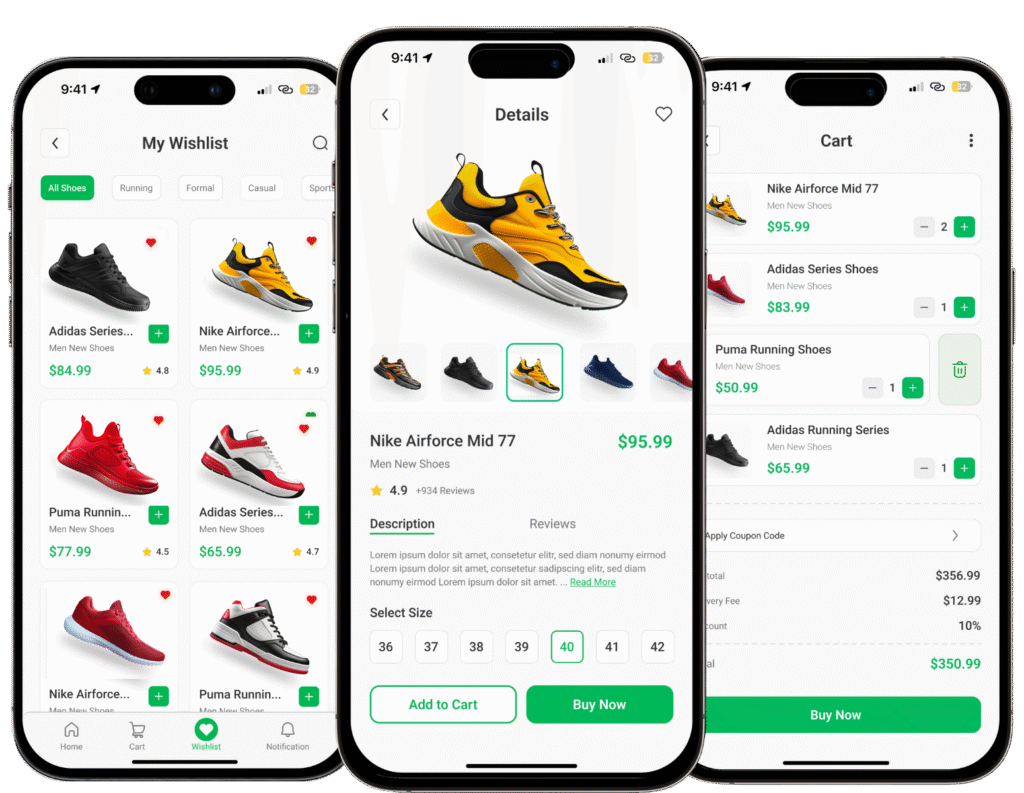What is Custom Mobile App Development and Its Top Advantages
In today’s competitive digital world, businesses are recognizing that a one-size-fits-all mobile app rarely delivers long-term value. That’s why many are turning to custom mobile app development—a tailored approach that aligns every part of the app with specific business goals, customer needs, and technical requirements.
Whether you’re building an app to support operations, connect with customers, or deliver a digital product, going custom can significantly increase your control, scalability, and ROI.
In this article, we’ll explore what custom mobile app development is and break down its most important advantages—so you can make an informed decision for your business.
What is Custom Mobile App Development?
Custom mobile app development is the process of creating a mobile application designed exclusively to meet the unique requirements of a specific business or user base.
Unlike off-the-shelf or pre-built app templates that serve generic functions, custom apps are built from the ground up—taking into account:
-
The specific workflows of a business
-
Its branding and user interface preferences
-
Target user behavior
-
Industry-specific challenges
-
Integration needs (e.g., with CRM, ERP, databases)
Custom apps can be designed for any platform—iOS, Android, or cross-platform—and often include features that are hard to find in standard solutions, such as custom analytics, advanced permissions, or real-time syncing with internal tools.
Top Advantages of Custom Mobile App Development
Let’s dive into the major benefits of building a custom mobile application, and why businesses are choosing this path over generic solutions.
1. Tailored to Business Needs
A custom app is designed around your exact workflows, goals, and users. Whether you’re running an e-commerce brand, managing field service operations, or creating a customer portal, every screen, button, and feature is made for your use case—no compromises.
This results in higher efficiency, better performance, and smoother user experiences.
2. Scalable Architecture
Custom apps are built with scalability in mind. As your user base grows or your business expands, a well-architected custom app can easily scale to support:
-
More traffic
-
New features
-
Advanced integrations
-
Multi-location usage
You’re not tied to the limitations of a pre-packaged solution.
3. Enhanced Security and Compliance
Security is a core concern for any app. With custom development, you can:
-
Implement specific data protection layers
-
Use custom encryption
-
Restrict access based on business rules
-
Ensure full compliance with industry regulations (like HIPAA, GDPR, or PCI-DSS)
This level of control is often impossible in generic solutions.
4. Seamless Integration with Existing Systems
Many businesses rely on internal tools—such as ERP systems, CRMs, payment gateways, or inventory management platforms. Custom apps can be built to integrate seamlessly with these systems via APIs or secure database connections.
This connectivity helps maintain consistent data flow, reduces manual entry, and enhances productivity across departments.
5. Long-Term Cost Efficiency
While a custom app may require a larger upfront investment compared to pre-built apps, the long-term cost savings are significant. You avoid:
-
Recurring subscription fees
-
Licensing limitations
-
Expensive third-party integrations
-
Inflexible updates that require reworking your entire workflow
Custom apps evolve with your business—on your terms.
6. Improved User Experience and Branding
Custom apps let you control every detail of the user interface and user journey. You can:
-
Match the app design to your brand identity
-
Build intuitive, user-friendly interfaces
-
Remove unnecessary features
-
Add personalized elements
This level of refinement leads to higher user engagement, retention, and satisfaction—especially important in customer-facing apps.
7. Better Control Over Updates and Features
You control the product roadmap. Need to add a new feature? Update the UI? Introduce localization? With a custom app, your development team can make targeted changes without waiting for vendor updates or compromising other functionality.
This flexibility gives you a faster reaction time to customer feedback and market shifts.
8. Ownership of Code and Data
Unlike third-party apps where you’re often just a licensee, custom mobile apps offer full ownership of:
-
Source code
-
User data
-
Cloud infrastructure
-
Product strategy
This gives your business complete control over intellectual property, usage policies, and future directions—critical for scaling and long-term independence.
9. Competitive Differentiation
A custom app enables businesses to stand out in their industry by offering something truly different:
-
Unique workflows
-
Features your competitors lack
-
Branded experiences
-
Deep customer personalization
In crowded markets, this distinction can be the difference between being average and leading.
10. Dedicated Support and Maintenance
When you build a custom app through a reputable development firm, you receive dedicated, ongoing support. This includes:
-
Continuous improvements
-
Bug fixes
-
Server monitoring
-
Security updates
You’re not just buying a product—you’re building a technology asset with long-term value.


